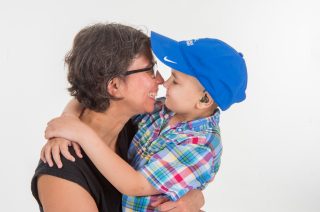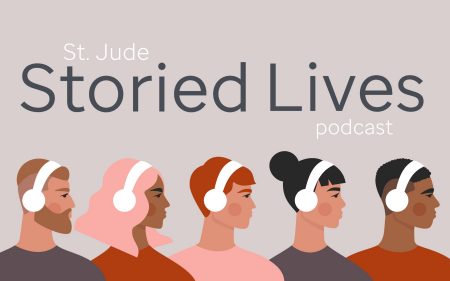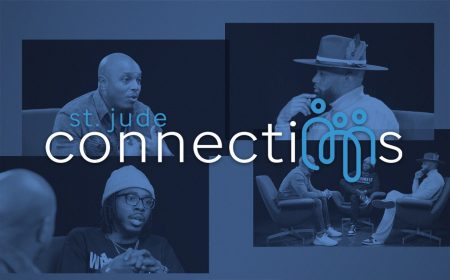
A second home for our hearts: St. Jude
On a steamy August night, St. Jude Children’s Research Hospital became my family’s second home — more specifically, our childhood cancer home. To be clear, it was not the first (or even second) hospital we went to, nor was it our last. And now, years after our son Colin passed away, St. Jude remains a second home for our hearts.

Do I say this because we always knew we would never receive a bill for his medical care while we were in Memphis? Or that we wouldn’t have to consider whether our insurance company would cover a procedure or drug when we decided what was best for him? Or that our family had a place to stay and food on the table while he was in treatment? Or even that the hospital covered travel expenses so we could keep coming back for the check-ups that were invaluable to monitor and maintain his health?
The short answer is no, though these facts are central to what people outside understand about what St. Jude does for families. When I faced the terrifying brain cancer diagnosis of my 2-year-old child, I came to see that this comprehensive support of our family was a side effect of the hospital’s commitment to families, not its mission.
After all, a home is not simply a collection of possessions or services but it comes from a feeling of comfort and caring. This is not just from the attitudes of the hospital’s employees but also from the basic premise that patient care comes first and that all patients are treated the same. What is available for one is available for all. As much as I would like to believe that my beloved child was a special patient, he received the same care as any other patient and the policies that apply to all families applied to ours.
The absence of privilege creates equality for the families who come from all walks of life in search of their slice of hope at St. Jude. Money does not buy better care, just as the lack of it does not mean that a child will have to forgo a medicine or therapy. Instead, a sense of community grows around the central idea that everybody who ends up at the hospital wishes they didn’t have to be there but is grateful that they are.
When Colin arrived in Memphis, an aggressive brain surgery had left him incapacitated: unable to eat, protect his lungs from pneumonia, or move one side of his body at all. Yet, the team at St. Jude reassuringly crafted a plan not just to treat his cancer but help him recover everything he had lost.
All parents who have been in my shoes understand how disorienting it is to hear those dreaded words: “Your child has cancer.” In our case, we had to make painful decisions that caused him to lose basic abilities. Despair and hopelessness always sat around the corner, yet we found a village that embraced us and assured us that we would do everything possible to bring him back and give him a chance to live a full life.
What is a home for the heart if not this?
Five years later, Colin’s cancer came back. In the meantime, he had learned how to walk— even run— and was thriving at elementary school. He was the “mayor” of his school, not because others pitied him but as a natural consequence of his bright, outgoing spirit and true passion for connecting with people. Of course, Colin encountered challenges, physically and cognitively, but he was always ready to face them and our visits to St. Jude were milestones until his trajectory changed.
Since there is no standard of care for his cancer when it relapses, we opted to try an experimental drug after returning to Memphis for another brain surgery (his third) and headed off with the blessings of his team. And we eventually came back—and went off again. In the three years after we discovered the relapse, he went to four other hospitals for treatment and we explored options with many others, but we always returned to St. Jude.
After more than eight years, Colin made one last trip to Memphis to land in a new hospital tower but greeted by familiar faces. We did not know how close we were to the end. A team that knew our family well gently brought us this news and supported all of us during those tender days to help us surround him with love and comfort.
As our world dilated to the singular focus on Colin, we constantly felt the invisible connection to all the people at St. Jude who had carried us through the hard times and celebrated our triumphs by our side. And, after all those years, the same nurses who cared for Colin when he originally arrived in Memphis took care of him in his final days. We could not have asked for a greater gift. We could not have asked for a better second home for our hearts.





